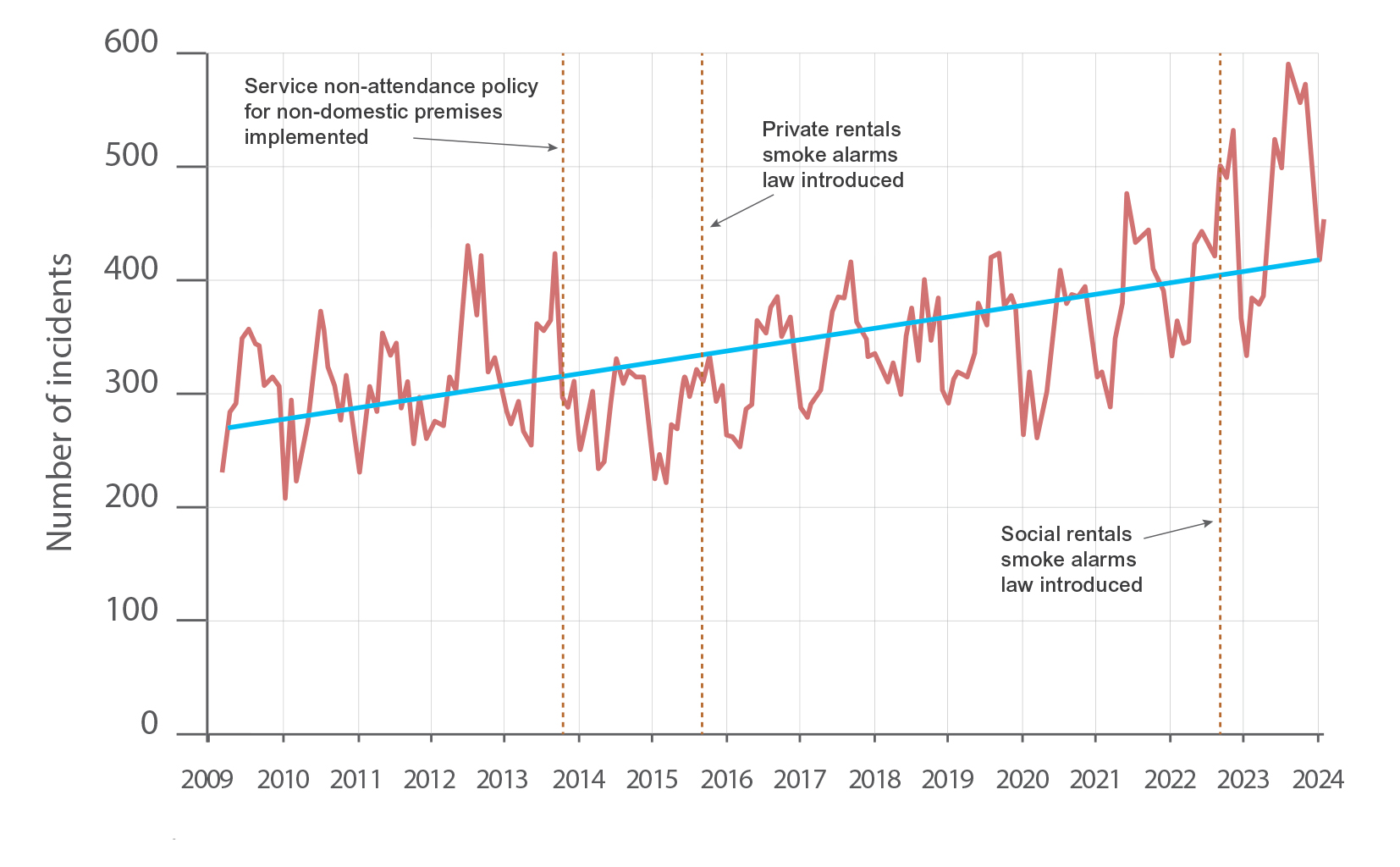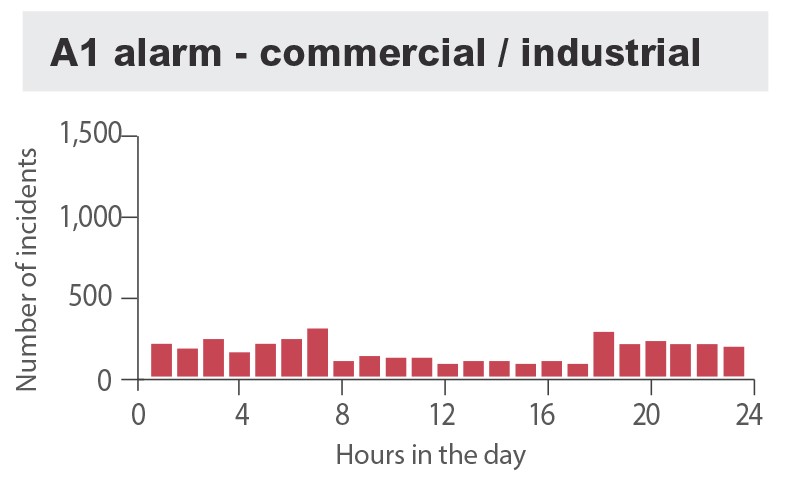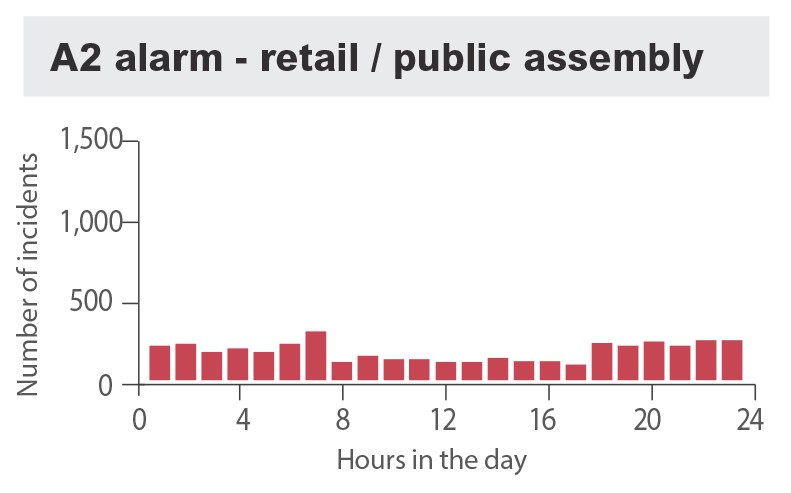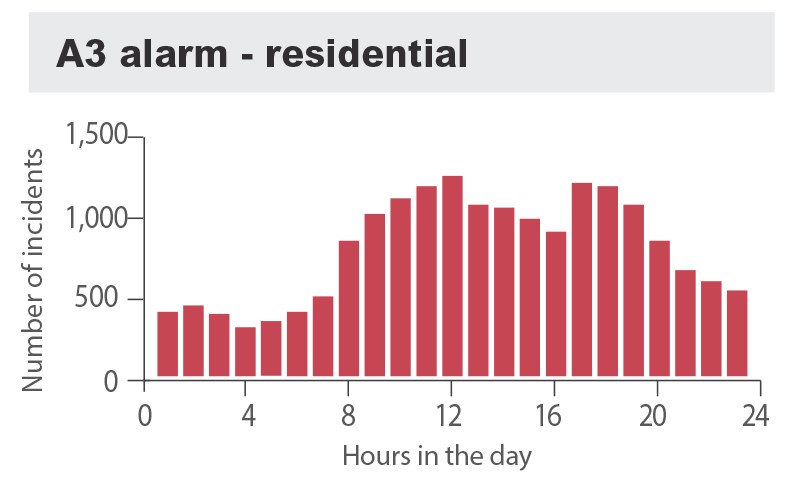Why we are looking to change
We want to make sure we are supporting our communities in the most efficient and effective way.
About a third of the fire-related incidents our crews are mobilised to are from automatic fire alarms, yet the number of these that are genuine emergencies is very small.
In the five years to 31 August 2024:
The Service received 145,443 fire-related notifications, including automatic fire alarms and 999 calls, and attended 84,283 incidents.
55,438, or 38%, of these incidents were automatic fire alarms.
- Of these, we attended 26,953 following call-challenging by Fire Control. That's 32% of the overall number of fire-related incidents we attended.
- Of these, 722 (2.7% out of 26,953) were fires, and 757 (2.8% out of 26,953) were special service calls, which is primarily carbon monoxide detection in domestic properties. Domestic properties are out of scope for proposed changes.
Of the 722 fires:
- 42 (0.16% out of the 26,953) needed a water jet from a fire engine.
- Of the 42 that required hose reel firefighting, 27 were within the domestic category.

Within five years there have been four fatalities and three serious injuries. All four fatalities were classified in the domestic category and therefore would not be impacted by any changes proposed in this project. Of the serious injuries, one was domestic and two were in the residential category. One of these residential incidents was notified by automatic fire alarm at 5.46am, the other with a 999 call so would not be impacted by any changes proposed in this project.
Other impacts
There is a financial impact to the Service from attending false alarms, but there are many other impacts too.
Every time we have an appliance dealing with a false alarm, those crews are not able to support other emergencies in that area meaning we need to send (mobilise) appliances from further away.
Unnecessary mobilisations also have an impact on our on-call firefighters, disturbing their primary work or home life. Something our firefighters are committed to doing for genuine emergencies, but becomes a disturbance when the mobilisation is needless.
For our wholetime firefighters, for whom the Service is their main employment, false alarms can impact upon their productivity, affecting training and community engagement.
Every mobilisation has potential impact for people on the roads who have to adapt their driving to make way for emergency vehicles.
Every journey by one of our appliances adds carbon to the atmosphere, increasing our environmental impact. The Service is committed to reducing our impact on the environment. We want to make sure that any impact we have upon the environment is done genuinely to save lives and property.
Our operating costs have been rising with inflation and the income we receive from taxation and government grants is not able to effectively match what we need to spend to provide an effective Service to our communities.
We have delivered a number of initiatives to remove inefficiencies in the Service, but we need to continue to make changes to reduce the gap where possible, as this gap is expected to increase over the next few years.
The trend for false alarm incidents has been increasing over time.
This chart shows that over the last 15 years, there has been an upward trend in the number of calls to false alarms due to AFAs. There was a decrease in 2013 when the Service introduced a non-attendance policy for AFAs at non-domestic premises. The number started to increase again after the law around smoke alarms for private rentals was introduced in 2015. There has been a further noticeable increase since 2022 after the social rentals smoke alarm requirement was introduced.

Previous changes to both the commercial and industrial and retail and public assembly categories to not attend during weekday daytimes unless there is a confirmed sight of fire or smell of smoke have had an impact. The charts below show reduction in incidents attended in these categories during the daytime where there is a non-attendance policy already in place, compared with residential premises where there is 24-hour attendance.


